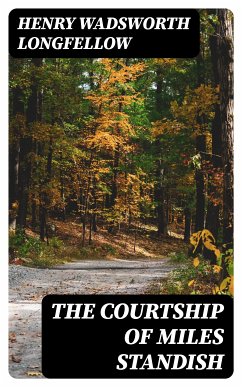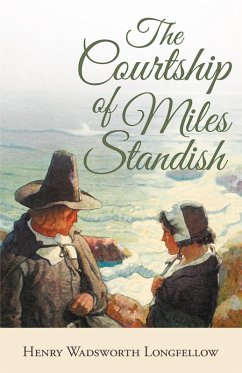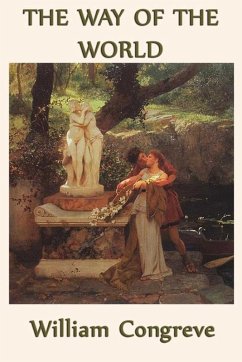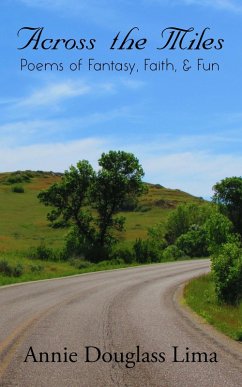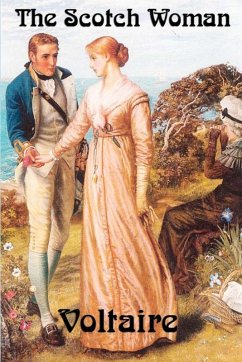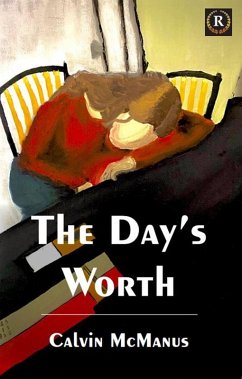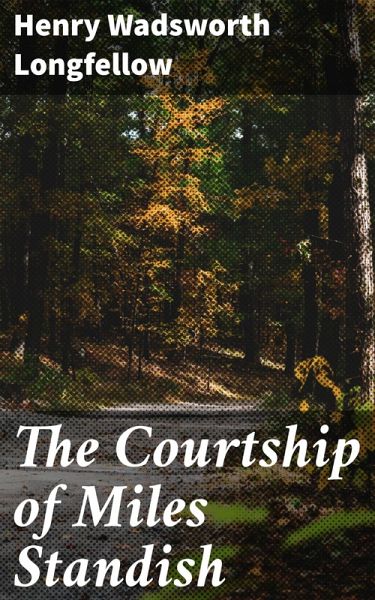
The Courtship of Miles Standish (eBook, ePUB)
Enriched edition. With Suggestions for Study and Notes
Kommentar: Northam, Vanessa / Redaktion: Good Press; Pearson, P. H.

PAYBACK Punkte
0 °P sammeln!
In "The Courtship of Miles Standish," Henry Wadsworth Longfellow engages readers with a narrative poem that artfully weaves themes of love, duty, and the trials of early American settlers. Set against the backdrop of the 17th century Plymouth Colony, Longfellow employs a lyrical style reminiscent of classic epic poetry, utilizing rich imagery and rhythmic cadences. The poem unfolds the poignant courtship of Miles Standish, a soldier, and his romantic pursuit of Priscilla Mullins, intertwined with the character of John Alden, who complicates the narrative through his unspoken affection for Pris...
In "The Courtship of Miles Standish," Henry Wadsworth Longfellow engages readers with a narrative poem that artfully weaves themes of love, duty, and the trials of early American settlers. Set against the backdrop of the 17th century Plymouth Colony, Longfellow employs a lyrical style reminiscent of classic epic poetry, utilizing rich imagery and rhythmic cadences. The poem unfolds the poignant courtship of Miles Standish, a soldier, and his romantic pursuit of Priscilla Mullins, intertwined with the character of John Alden, who complicates the narrative through his unspoken affection for Priscilla. The poem reflects the ideals of romanticism while also situating itself within the broader context of American nationalism in the post-Colonial era, capturing the spirit of resilience present in America's foundation myths. Henry Wadsworth Longfellow (1807-1882) was a preeminent American poet who sought to express the unique experiences and values of American identity. Influenced by European romantic traditions and the burgeoning sense of American nationalism, Longfellow's works often explore themes of history and myth. Drawing upon historical accounts of the Pilgrims and their struggles, he crafted "The Courtship of Miles Standish" to both celebrate American roots and offer a reflection on human emotions in the face of adversity, emblematic of his deep connection to the New England landscape. Readers are encouraged to immerse themselves in this rich tapestry of love and historical significance. Longfellow's deft portrayal of character emotions and the interplay of societal duty versus personal desire elevates the narrative beyond mere storytelling. "The Courtship of Miles Standish" is a profound exploration of the heart that not only enchants through its lyrical beauty but also resonates with the enduring themes of love and sacrifice, making it a timeless classic worthy of reflection. In this enriched edition, we have carefully created added value for your reading experience: - A succinct Introduction situates the work's timeless appeal and themes. - The Synopsis outlines the central plot, highlighting key developments without spoiling critical twists. - A detailed Historical Context immerses you in the era's events and influences that shaped the writing. - An Author Biography reveals milestones in the author's life, illuminating the personal insights behind the text. - A thorough Analysis dissects symbols, motifs, and character arcs to unearth underlying meanings. - Reflection questions prompt you to engage personally with the work's messages, connecting them to modern life. - Hand-picked Memorable Quotes shine a spotlight on moments of literary brilliance. - Interactive footnotes clarify unusual references, historical allusions, and archaic phrases for an effortless, more informed read.
Dieser Download kann aus rechtlichen Gründen nur mit Rechnungsadresse in A, B, BG, CY, CZ, D, DK, EW, FIN, F, GR, H, IRL, I, LT, L, LR, M, NL, PL, P, R, S, SLO, SK ausgeliefert werden.




